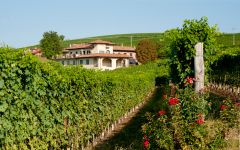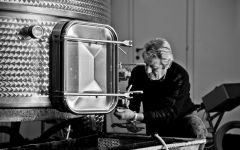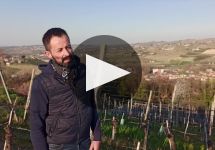Sottimano Dolcetto d'Alba Bric del Salto 2017
-
Robert
Parker



Product Details
Your Rating
Somm Note
Winemaker Notes
Professional Ratings
-
Robert Parker's Wine Advocate
The 25 days of maceration that the 2017 Dolcetto d’Alba Bric del Salto undergoes would be considered long by most standards, and as a result, the aromas are very pronounced. The fruit is delicate, and the mineral notes come out very strongly here. It is almost crunchy in terms of mouthfeel. This was a hot year, but you’d never know it with this wine because it has an oddly cool-climate personality. It's very floral and delicate on the nose with notes of blossoming rose. There is a refined or, you might say, even traditional side to this wine that you don’t often see in its peers. Some 14,000 bottles were made. It's one of those subdued, floral and flinty light reds that would pair perfectly with a roast chicken sprinkled with rosemary and squeezed lemon.
Other Vintages
2022- Vinous
-
Robert
Parker
-
Robert
Parker







Andrea Sottimano and his father Rino produce wines of outstanding quality from thirteen lovingly cared for hectares in the Cotta, Curra, Fausoni, Pajore and Basarin crus in the Treiso and Neive townships. Their Barbarescos are elegant, evocative, subtle yet hearty. To taste these crus side-by-side is to reply with a resounding yes to skeptics of terroir that question whether differences of only 200 meters does matter! Their approach if one of minimal intervention: indigenous yeasts, no fining or filtering. Each of their four crus Barbarescos are given the same treatment to allow the uniqueness of each cru to express itself. Fermentation is done in oak, of which about 30% is new, followed by 18-20 months in neutral barriques. Every year they produce around 85,000 bottles.
Sottimano is firmly convinced that everything in the vineyards should be done in a serious and respectful way, with the only target of preserving the delicate balance between soils and the ecosystem.
Starting from the begin, together with many other wineries of this region, they have begun to fight the traditional diseases of the vines with natural, environmentally friendly products, and to avoid any kind of herbicides and pesticides

An easy drinking red with soft fruity flavors—but catchy tannins, Dolcetto is often enjoyed in its native Piedmont on a casual weekday night, or for apertivo (the canonical Piedmontese pre-dinner appetizer hour). Somm Secret—In most of Piedmont, easy-ripening Dolcetto is relegated to the secondary sites—the best of which are reserved for the king variety: Nebbiolo. However, in the Dogliani zone it is the star of the show, and makes a more serious style of Dolcetto, many of which can improve with cellar time.

An historic village situated right in between the famous regions of Barolo and Barbaresco, Alba is also the name for the larger wine region surrounding the village.
In a sense, “Alba” is a catch-all phrase, and includes the declassified Nebbiolo wines made in Barolo and Barbaresco, as well as the Nebbiolo grown just outside of these regions’ borders. In fact, Nebbiolo d’Alba is a softer, less tannic and more fruit-forward wine ready to drink within just a couple years of bottling. It is a great place to start if you want to begin to understand the grape. Likewise, the even broader category of Langhe Nebbiolo offers approachable and value-driven options as well.
Barbera, planted alongside Nebbiolo in the surrounding hills, and referred to as Barbera d’Alba, takes on a more powerful and concentrated personality compared to its counterparts in Asti.
Dolcetto is ubiquitous here and, known as Dolcetto d'Alba, can be found casually served alongside antipasti on the tables of Alba’s cafes and wine bars.
Not surprisingly, given its location, Alba is recognized as one of Italy’s premiere culinary destinations and is the home of the fall truffle fair, which attracts visitors from worldwide every year.
